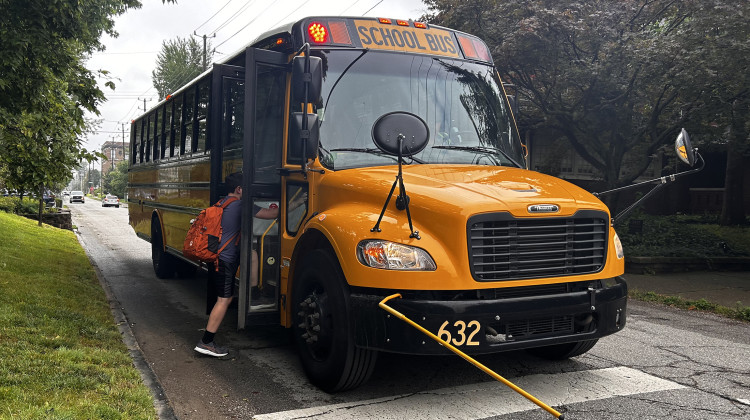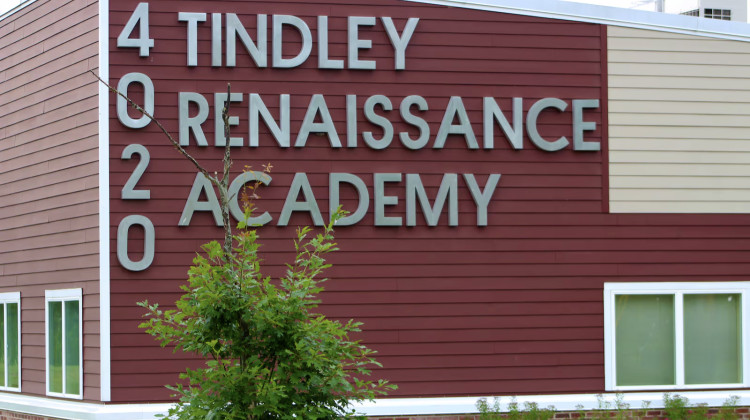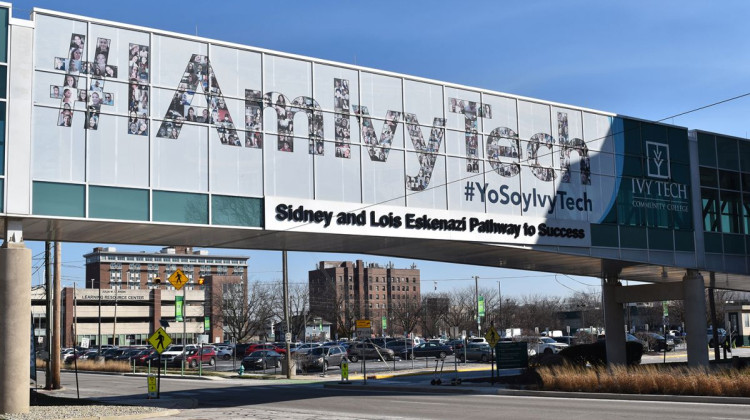The Indiana Charter School Board voted Wednesday to require Indianapolis campuses it oversees to participate in the city’s common enrollment system, Enroll Indy. As a result, families are now one step closer to being able to apply to all public, choice schools in Indianapolis Public Schools boundaries through one website and office.
Until now, a handful of charter schools have been reluctant to cede control of their enrollment to Enroll Indy, a lottery-based single application process for families to register for IPS magnet schools and charter schools. Most of the public schools in IPS boundaries now use the three-year-old system, but two notable holdouts are the state-authorized networks Christel House Academy and Phalen Leadership Academies.
When Indianapolis operators seek charters from the state board, they will now be required to participate in Enroll Indy, after the board approved the new policy without dissent during its virtual meeting Wednesday. Existing schools that do not use the system will only be required to participate once their charters are renewed.
The state board had previously left the decision up to schools. But Indiana Charter School Board Executive Director James Betley said that data shows that Enroll Indy gives the city’s most disadvantaged families access to school choices through a transparent lottery system.
Using the enrollment portal will help the state charter board oversee campuses more effectively. In recent years, many of the Indianapolis schools overseen by the board have struggled with enrollment, and some have opened with just 30 students, Betley said.
“One of the issues is, we have no idea what their enrollment is,” he added. “Not only is it self-reported, but there is no way to verify it.”
Many of the city’s charter schools are already required to participate. The mayor’s Office of Education Innovation, which oversees most Indianapolis charter schools, already mandates participation for new and renewed charters. It is also typically required by IPS as part of innovation partnerships, which allow charter schools access to some district services or buildings while maintaining independence. (Both Christel House and Phalen participate in Enroll Indy at campuses that are innovation schools.)
When families apply for seats through Enroll Indy, which also does outreach to help them find schools, they rank the schools they would like their children to attend. Each student is typically given a seat at the highest ranked school where a spot was available based on the lottery. The system runs winter and spring lotteries for the upcoming school year. During the summer and current year, students enroll in schools with open slots on a first-come, first-serve basis.
Proponents of common enrollment systems say that it allows schools to more accurately plan for the coming year because parents cannot hold spots at multiple schools. But one reason why some schools are reluctant to participate in Enroll Indy is that the system does not have waitlists — instead, schools are expected to plan for attrition by admitting additional students.
Sarah Weimer of Christel House Academy said that she is concerned that without a waitlist, the network won’t be able to prioritize students appropriately during the late enrollment period.
“We think that it’s important ... that we are able to call students and families who do meet those preferences — the low-income preference, the sibling preference — to be able to backfill any open seats that we have,” Weimer said. Without a waitlist, she argued, some students will “essentially jump ahead of any student who wasn’t placed with us as their first or second choice.”
But Bill Murphy, executive director of Enroll Indy, said that when it comes to making a system-wide decision about whether to have waitlists, “we look at who is most likely to be impacted.”
“The fact of the matter is,” Murphy said, “the very families who are coming from low-income backgrounds, who are historically under-served are the ones who engage in summer transition.”
Chalkbeat is a nonprofit news site covering educational change in public schools.
 DONATE
DONATE







 Support WFYI. We can't do it without you.
Support WFYI. We can't do it without you.